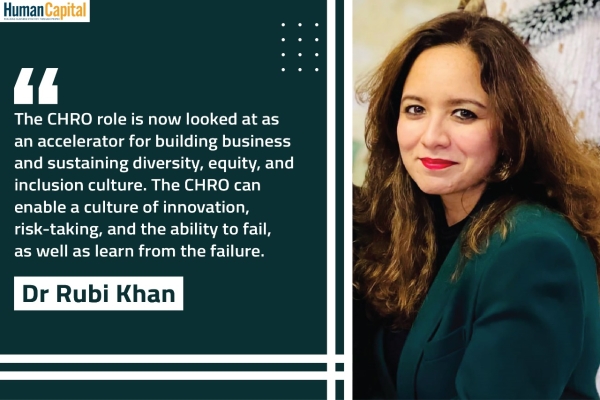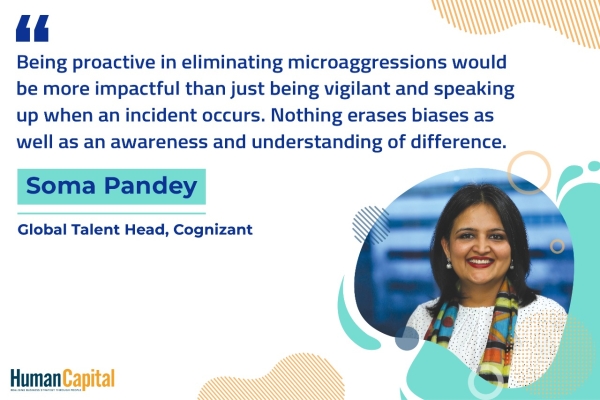The one attribute among several leadership subtleties that can make all the difference for me is critical thinking, and henceforth the world will belong to the men and women of the mind.
We live in a scientifically advanced and digitally guided age, which is slowly but surely becoming sensitive to the Transcendental Power that hovers in this universe. An effort to find solutions to the biggest problems of life, the world, and God, is now a subject of discussion and debate among people in general, and not just the intellectual luxury of a few. The desire to know, the quest to give meaning to life, the longing to find a solution to the insoluble has become a personal quest for every person — in the workplace, on the street, and in the field alike.
We are no longer confined to the edges of the universe or a living on the surface of life. We are now brimming with a desire to know the grain from the husk, the value of a person, and answers to innumerable questions that life imposes. This is indeed the thinking age, the age of reason.
One aspires to show that critical thinking is not a mere occupation that can be set aside for a few, it is instead, an indispensable keystone of the conduct of life itself, for a leader, in every walk of life. If this is an age of reason, it is time for us to think critically and be precise.
Philosophy and the Pursuit of Truth
As a form of explosive thinking, Philosophy claims to provide critical answers to the ultimate questions, which after deliberate exploration, makes such questions enigmatic and puzzling. The central and characteristic attempt of Philosophy consists of an inquiry into:
♦ The credentials of the subtle
♦ The supreme and the evasive
♦ The critical attitude to any kind of tradition, practice, or belief system It delves into statements and concepts to analyse every fibre in the pursuit of truth.
It makes one wonder:
♦ Can modern-day leaders develop that kind of an insatiable desire to go after issues and problems to get to the root of things in a workplace?
♦ Can they employ critical thinking to find solutions instead of prescribing solutions based on some isolated success stories alone?
♦ Do our organisations not need such originality and purity in thinking from our leaders since every problem can be unique in the realm of people?
On many occasions, a person lacking in critical thinking goes through life imprisoned in the prejudices derived from common sense, from the habitual belief of one’s culture and experience. They also fall prey to the conviction that spring up in a tender mind, without the consent of pure reason. To such an individual, this world with all its volatility, uncertainty, complexity, and ambiguity poses no question and causes no concerns.
Using Critical Thinking to Find Solutions
Today, many leaders operate at such detached levels that they are unable to find newer solutions to the issues they deal with on a daily basis. On the contrary, a person who is thrilled by the variety in this universe finds that even the most insignificant events pose problems to the mind, and that we can, at times, come up with only incomplete answers. This helps them to come up with imaginative and creative solutions while accepting the limitations of what can be done.
In other words, critical thinking makes one humble and pragmatic in approach. Critical thinking, in effect, resuscitates a person who has been drowned, questions the deeply rooted practices in place, strikes hard on any sort of arrogant dogmatism, and gives practical solutions. The art of critical thinking, therefore, is a genuine search to make life a chain of meaningful incidents than leave it as a pure string of accidents.
You will always find some overzealous set of leaders constantly adopting practices that are said to be proven elsewhere and benchmarking themselves. They refuse to take the bull by the horn, and think on their feet.
Experience has limitations and can be outdated but thinking will never be! Thus, leaders are hired for their thinking ability, more than their practical experience.
People with critical thinking possess the ability to:
♦ Look at data dispassionately
♦ Assess situations without judgmental subjectivity and
♦ Make decisions unclouded by emotions
One believes that this ability is quintessential for all those in leadership roles.
Critical thinking has become that most difficult task which is rarely performed, but mostly desired in this age of the mind we live in now.
The ability to distinguish Good from Great
“Creative thinking is today’s most prized, profit-producing possession for any individual, corporation, or country. It has the capacity to change you, your business, and the world” – Robert P. Crawford, author.
Today, the best paying positions in the job market are where thinking — classified as creative, critical, or professional — is identified and positioned as primary.
While a lot of people continue with the old-world philosophy of ‘hard work creates successes’, many have transitioned to working smarter and thinking sharper.
Perhaps, it is time for organisations to relook at the pay and perks philosophy, move away from dividing the leader’s salary by the number of hours they spend, or even the decisions they make. This simply creates an impression of them being overpaid at least in the minds of the ordinary.
In the entire process, one might realise that a lot of leaders are underpaid, considering the quality, originality, novelty, and profundity of their thinking. Further, these can be the asset, key differentiator, and indication of the true potential of the organisation. In short, the ability to think critically distinguishes the good from the great and the middle class from the world-class. The one attribute among several leadership subtleties that can make all the difference is critical thinking, and henceforth, the world will belong to the men and women of the mind.
Many of the contemporary leaders often pigeonhole the very desire and capacity to think critically. Gone are the days when a leader could be effective with mere domain knowledge. To sound sensible and appear credible in this age of reason, leaders need the culture and habit of critical thinking.
Follow and connect with us on LinkedIn, Facebook, Instagram, Twitter for latest HR news and insights.

Has COVID-19 forever changed the way we live and work?
Trending
-
SBI General Insurance Launches Digital Health Campaign
-
CredR Rolls Out 'Life Happens' Leave For Its Employees
-
Meesho Announces 30-Week Gender-Neutral Parental Leave Policy
-
Microsoft Unveils Tech Resilience Curriculum To Foster An Inclusive Future
-
60% Indian Professionals Looking For Job Change Due To COVID: Survey
-
SpringPeople And Siemens Collaborate For Digital Transformation Push
-
86% Professionals Believe Hybrid Work Is Essential For Work Life Balance: Report
-
Almost 1 In Every 3 People's Personal Life Affected Due To Work Stress
-
Meesho Rolls Out Reset And Recharge Policy For Employees
-
80% Of Talent Leaders & Academics Say Pandemic Changed Skill Needs For Youth: Report
-
Hero Electric Rolls Out 'Hero Care' Program For Employees
-
Human Capital In Collaboration With ASSOCHAM Hosts Virtual Conference
-
IKEA India, Tata STRIVE Collaborate To Create Employability And Entrepreneurship Opportunities
-
SAP India, Microsoft Launch Tech Skilling Program for Young Women
-
DXC Technology, NASSCOM Collaborate For Employability Skills Program
-
Lenskart To Hire Over 2000 Employees Across India By 2022
-
Mindtree Launches Learn-and-Earn Program
-
Tata AIA Extends 'Raksha Ka Teeka' To Its Employees
-
Swadesh Behera Is The New CPO Of Titan
-
NetConnect Global Plans To Recruit 5000 Tech Professionals In India
-
Hubhopper Plans To Hire 60% Of Indian Podcasters By 2022
-
Corporate India Needs More Women In Leadership Roles: Report
-
Aon to Invest $30 Million and Create 10,000 Apprenticeships by 2030
-
Tech Mahindra Launches ‘Gift a Career’ Initiative for Upskilling of Youth
-
40% Women Prefer Flexible Working Options in Post-COVID World: Survey
-
3 out of 4 companies believe they can effectively hire employees virtually: Report
-
Vodafone , CGI and NASSCOM Foundation launch digital skills platform
-
Odisha: Bank, postal employees to deliver cash for elderly, differently-abled persons
-
Skill India launches AI-based digital platform for "Skilled Workforce"
-
Hiring activity declines 6.73% in first quarter: Survey
-
70% startups impacted by COVID-19 pandemic
-
Bajaj Allianz Life ropes in Santanu Banerjee as CHRO
-
Over 70 Percent MSMEs look at cutting jobs to sustain businesses
-
93 Per Cent employees stressed about returning to office post-lockdown
-
Johnson & Johnson India announces family benefits for same gender partners
-
Indian firms turning friendly towards working mothers
-
Welspun India names Rajendra Mehta as new CHRO
-
Wipro partners with NASSCOM to launch Future Skills platform



Human Capital is niche media organisation for HR and Corporate. Our aim is to create an outstanding user experience for all our clients, readers, employers and employees through inspiring, industry-leading content pieces in the form of case studies, analysis, expert reports, authored articles and blogs. We cover topics such as talent acquisition, learning and development, diversity and inclusion, leadership, compensation, recruitment and many more.
Subscribe Now












































Comment